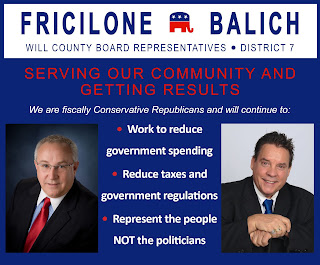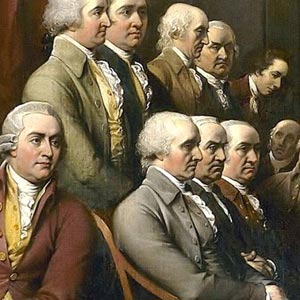By Bob Livingston

Always remember that personal freedom is inversely proportional to governmental freedom. In other words, in whatever interest or matters one chooses not to self-govern, others will govern for you. But individuals are often happy to relinquish this responsibility for themselves in order to seem altruistic. It might even make them feel patriotic. What they don't realize is that they are making a terrifying trade-off. Once an individual sacrifices himself to the collective, the collective can then sacrifice the individual to further its own ends.
Freedom does not exist in a vacuum; it does not exist for those who do not exercise it. Seemingly convenient at first, rule by others quickly becomes arbitrary, descends into slavery and ultimately becomes murderous. Much has been said and written about the supposed checks and balances of the Constitution, but the only reliable check and balance against tyranny is self-government.
Freedom is like a precious commodity to be mined from life. The politicians and global elite deceive the masses into believing that freedom exists mystically and ethereally, to be breathed in like air or enjoyed at one's leisure. They want us to think of freedom like that, as some nebulous, pretty thing to be unwrapped from pretty packages, tangible only when it is a meager privilege bestowed by other men playing God.
Freedom is a black-or-white, yes-or-no, either/or, zero-sum proposition. There are no gray areas or lukewarmness when it comes to freedom.
But the concept of freedom of the individual, or individual liberty, has been shoved down the memory hole and replaced by a popular mentality of diminishing the individual and independent thinker to a collectivist mind (mentality) which can be esoterically swayed, directed and channeled against his own best interest. The virtue and sanctity of the individual person and ego is no more, and anathema to the state.
What does it all mean? It means that a state of mind is developed and nurtured that freely gives oneself and one's production to the state. Each individual, in order to be a good citizen of the state, must contribute most of his means and be grateful for the services the state returns — whether they are necessary or useful or not.
The result is that even so-called conservatives have come to not only accept socialism but to embrace it in many forms. Oh, they'll reject it when it's called what it is, as conservatives have chimed in to reject and ridicule proposals by self-avowed socialists like Bernie Sanders and the new communist darling Alexandria Ocasio-Cortez. But they readily accept socialism in its many forms, especially when it's proposed by socialists masquerading as Republicans.
Republicans claim to have the corner on genuine conservatism. But there is nothing conservative about the welfare state, the warfare state or the police state. All are big government programs and are used to steal liberties — particularly the liberties of free association, free assembly, free speech, free markets, religious liberty and control over one's own health and body.
With nary a peep out of the so-called conservative voter, Republican politicians just passed an $854 billion spending bill to fund the departments of Defense, Health and Human Services, Labor and Education which, as The Hill notes, "make up the lions share of total government spending." All but six of the 51 Senate Republicans joined all the Democrats (save Sanders) to vote for the bill. House Republicans have successfully marginalized the House Freedom Caucus and are getting set to pass the bill or something similar enough that it will be settled in conference.
Republican politicians and voters embrace Social Security, Medicare and its expansions, Medicaid, No Child Left Behind, a greater regulatory state and most parts of Obamacare. There is little effort beyond show to cut government spending by the statist Republican politicians, and "conservative" Americans call for spending cuts only until their favorite social or corporate welfare program becomes part of the discussion.
How can government socialism of Sanders and Ocasio-Cortez be bad but the socialism of big government Republicans be good?
There is no such thing as a little socialism. As Ron Paul wrote this week:
| Many Republican politicians — and even conservative intellectuals — will say they are being pragmatic by not fighting progressives on first principles, but instead limiting the damage done by the welfare state. The problem with this line is that, by accepting the premise that government can and should solve all of life's problems, conservatives and Republicans will inevitably get into a "bidding war" with progressives and Democrats. The only way Republicans can then win is to join Democrats in continually increasing spending and creating new programs. This is why the so-called "conservative welfare state" ends up as bloated and expansive as the progressive welfare state. Refusing to question the premises of the welfarists and socialists is not a pragmatic way to advance liberty. While progressives blame social crises on the free market, Republicans and conservatives are unwilling to admit the problems were caused by prior government interventions… Until a popular intellectual movement arises that is able and willing to challenge the premises of Keynesianism, welfarism, and democratic socialism, while putting forth a positive vision of a free society, government will continue to expand. Fortunately, such a movement exists and is growing as more Americans — particularly young Americans — are studying the ideas of Liberty and working to spread those ideas. If the new liberty movement grows and stays true to its principles, it will be able to defeat the socialists of all parties, including those who call themselves conservative. |
When someone is spiritually deceived into faithfully believing in a system, it becomes impossible for that person to think logically, rationally, coherently and consistently about the true nature and problems associated with that system. It took thousands of years for the elite and their spiritual descendants to put over this spiritually-based deception and system on a truly global scale. By perpetuating it, the elite remain in charge — a plutocracy masked by the usual labels: democracy, social democracy, socialism, global capitalism, free trade, etc.
Lovers of self-government and freedom always question consensus authority. A good rule of thumb that has always served me well is to believe the opposite of what the politicians and the media tell you. Remember that government has nothing good to give you. The government is in the business of shrinking freedom (and wealth), not expanding it; and in the business of expanding itself, not shrinking itself.
Socialism and its evil twin, democratic socialism, are disguised systems of stealing the wealth and production of the producers of wealth with spurious laws under the legitimacy of the vote. Stealing or taking from producers and transferring it to nonproducers is very sophisticated and concealed class warfare. It is a philosophy of envy, racism, weakness, ineptitude and collectivism. It is groupism, the hidden strategy to get the masses to give their minds over to the state.
This, my friends, is the politics of authoritarianism. Socialism = communism = fascism = democracy = tyranny. Things that are equal to each other are the same. All political power is derived from this. This must be understood or there is no understanding at all.













